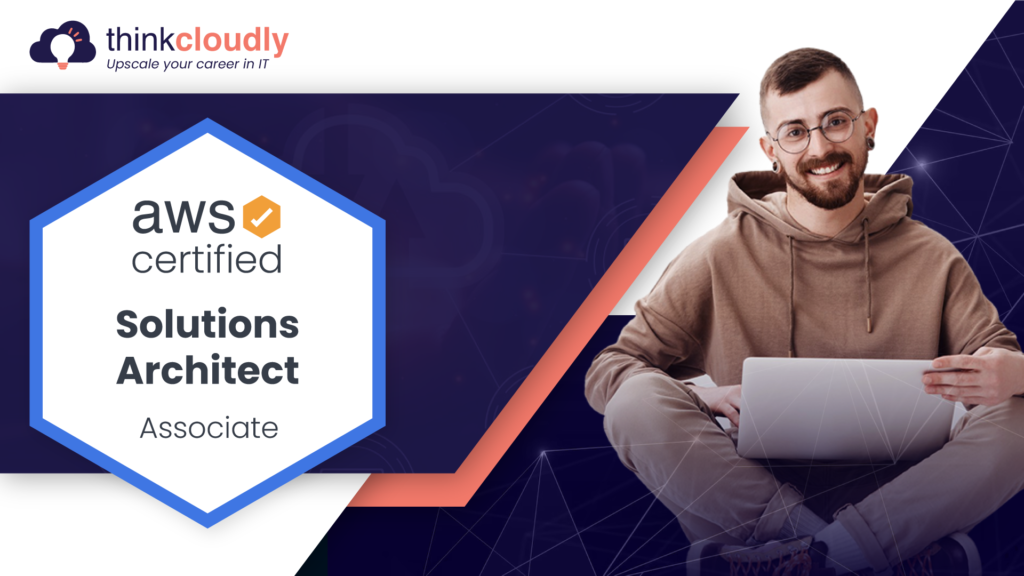A few days ago, I wrote about the Top 17 AWS IAM interview questions and answers (Part 1). Now, it’s time to conclude this IAM interview questions blog series with the next part of this article series – AWS IAM interview questions and Answers (Part 2). I hope these questions will be helpful in your next interview. In this second part, we are going to talk about a lot of things: policy types, access control models, service-specific policies, conditional statements for permissions, and roles that cannot be delegated.
In the realm of AWS DevOps, where experienced professionals navigate complex scenarios, a fundamental understanding of AWS IAM architecture is paramount. When it comes to AWS IAM interview questions, candidates are often grilled on their knowledge of Identity and Access Management. To ace these interviews, it’s crucial to grasp the intricacies of IAM policies, roles, and users, and be prepared for scenario-based questions that test your ability to design secure access controls. With a firm grasp of IAM principles, you can confidently tackle identity and access management questions, providing answers that showcase your expertise in safeguarding AWS resources and ensuring a robust security posture for cloud-based systems.
IAM Q&A: Navigating Identity and Access Management
Identity and Access Management (IAM) questions and answers provide a valuable resource for understanding the intricacies of managing user access and permissions within AWS. These questions cover a range of topics, from IAM policies and roles to multi-factor authentication and cross-account access. IAM is essential for securing AWS resources and ensuring that users have the appropriate level of access to perform their tasks without compromising security. By familiarizing yourself with IAM questions and their corresponding answers, you can demonstrate your expertise in designing and implementing robust access control strategies that align with AWS best practices and compliance standards.
Below are some advanced-level AWS IAM interview questions for experienced candidates
Information security (infosec) is a complex field, so being enthusiastic and understanding why IAM is so important is key. Be prepared for basic and more complex questions about your experience, technical and nontechnical skills, and personality.
Q1. Have you implemented IAM solutions and products such as multifactor authentication (AWS MFA)?
Answer:
There can be several ways to answer this question like :
Yes, I have worked on IAM solutions as I have been the part of Identity and Access Management team for around a year, wherein we configured and managed Multifactor authentication in AWS with DUO. I used to troubleshoot the MFA issues for the users, re-enabling registration or revoking the active sessions in case of any security-related issues.
Q2. How do you configure\integrate DUO MFA in an AWS account?
Answer:
It generally takes around 45 minutes to deploy AWS MFA using DUO:
1. Firstly we need to get a license from DUO website Click Here.
2. Secondly launch the quick start within the AWS console after selecting the region select any two options:
a. Deploy Duo MFA into a new VPC
b. Deploy Duo MFA into an existing VPC
3. Wait for the deployment to complete once complete verify the same, you can also make changes in the implementation.
Q3. Why do we need MFA?
Answer:
Multi-factor authentication is an important security measure that adds an extra layer of protection to your account. By requiring more than one form of authentication, it makes it more difficult for someone to gain unauthorized access to your account. MFA can help protect your account from threats like phishing and password guessing, and can also help you comply with regulatory requirements.
Boost your earning potential with AWS expertise. Explore our certified AWS Courses for a high-paying career
Q4. Why do we need IAM in AWS?
Answer:
- SECURITY: To protect against compromised user credentials and easily cracked passwords.
- PRODUCTIVITY: To ensure business productivity and frictionless functioning of digital systems.
Q5. What Does an IAM Do?
Answer:
- Manage user identities
- Provisioning and de-provisioning users
- Authenticating users
- Authorizing users
- Reporting
- Single Sign-On
Recent graduates and career changers can benefit from knowing IAM terminology. They can read up on the major components of IAM. You can refer to TOP 17 AWS IAM Interview Questions and Answers to Help You Prepare.
- Do you have experience promoting code in the cloud?
- What technologies and tools have you used?
- How have you found these tools and cloud providers to be both pluses and minuses?
- Do you have any experience with virtual machines?
Q6. Did you manage employee and other internal staff identities in addition to customer identities?
Answer:
The answer for this question may vary depending on the job and company, IAM professionals deal with a range of users, from customers to service accounts, internal employees, partners, etc.
So now you will have to look back into your last company experience and on that bases answer it.
Build Your Career as a
AWS Solution Architect
- Live Projects
- Resume / Interview Preparation

Q7. Which IAM tools and solutions do you prefer?
Answer:
There are a few different tools that can be used when working with IAM, depending on what you’re trying to achieve. The AWS Management Console is a great starting point, as it provides a graphical interface for managing users, groups, and permissions. The AWS Command Line Interface (CLI) is also useful for scripting common tasks or performing bulk actions. Finally, the AWS Identity and Access Management API can be used for programmatically managing IAM resources.
Q8. What is cryptography in AWS?
Cryptography is the practice of secure communication in the presence of third parties. In AWS, cryptography is used to protect data at rest and in transit. Cryptography is a critical part of the security of Amazon Web Services, and we use it extensively to protect your data. AWS provides two key tools for managing encryption keys:
- Key Management Service (KMS), which encrypts or decrypts data
- CloudHSM, which generates or uses hardware-based keys.
CloudHSM is a cloud-based hardware security module (HSM) that enables you to generate and use your own encryption keys on the AWS Cloud.
Q9. What is KMS in AWS?
Answer:
Key Management Service (KMS) is a managed service in AWS that makes it easy for you to create and control the encryption keys used to encrypt your data. KMS is integrated with other AWS services, making it easy to use in a variety of scenarios.
Q10. What is CloudHSM in AWS?
Answer:
CloudHSM is a cloud-based hardware security module (HSM) that enables you to generate and use your own encryption keys on the AWS Cloud. With CloudHSM, you can manage your own cryptographic keys and data in a secure manner. You can create an HSM with a key size of 256 bits or larger, configure it for single sign-on (SSO), upload your data, set permissions for who can access what within the HSM, and even add two factor authentication for enhanced security. You’ll also have access to all of Amazon’s other services like SQS, S3, Lambda, VPCs and more.
Q11. Why is Cryptography important?
Answer:
Cryptography is important because it helps protect information from being accessed by unauthorized individuals. It can also be used to verify the identity of someone sending a message, ensuring that the message has not been tampered with. Cryptography is a critical part of keeping information safe, and it is important to understand how it works.
Q12. What is AWS Security Token Service (STS) ?
Answer:
Amazon Web Services Security Token Service is a web service that enables you to request temporary, limited-privilege credentials for AWS Identity and Access Management (IAM) users or for federated users who have been authenticated by an identity provider. This guide provides an overview of STS and its features, and includes several recipes that demonstrate how to use STS in your applications.
Q13. What is IAM Access Analyzer?
IAM Access Analyzer is a service that helps you analyze resource access in your AWS environment. It uses machine learning to identify which resources are accessed most often, and can also help you detect unusual or unexpected access patterns. By understanding how your resources are being accessed, you can make better decisions about how to secure them.
Q14. What are the Features of AWS IAM?
Answer:
AWS IAM offers a variety of features that can be used to secure your AWS account and resources.
These features include:
Q15. Explain federated user access management?
Answer:
Federated user access management is a way to manage user identities across multiple systems. This can be useful for companies that have employees who need to access multiple systems, or for companies that have acquired another company and need to integrate their user management systems. Federated user access management can also help reduce the number of passwords that users have to remember, and can make it easier to revoke access to all systems if an employee is no longer with the company.
AWS IAM Professional Questions and Answers
An experienced AWS IAM professional can also be asked the below types of questions by an interviewer to understand their capabilities:
Q1. Have you been involved in an interesting/rewarding project or initiative?
Answer:
These questions are a golden chance to showcase your skills. As part of this question, interviewees can talk about projects that used skills relevant to the position for which they are applying. Interviewees can highlight what made the project interesting to them, work with others, and what they learned. An experienced candidate might discuss the project’s management and technical challenges. New graduates can discuss activities they conducted during their university years, training programs, and internships.
Q2. What kinds of projects would you avoid?
Answer:
Be sure not to mention anything bad about your former employer. Maintain a positive attitude. Using a positive explanation such as you are never scared of handwork and anything new can give a chance for you to learn. Challenges always teach new lessons in life and technology so don’t avoid them.
There can be some follow-up questions also be asked after this answer such as :
- What is your next step?
- What kind of projects or initiatives would you like to work on?
- What are the skills you are looking for?
Q3. How have you overcome the biggest challenge? What is the biggest mistake you have made?
Answer:
In the world of business, there are many challenges that can come up. However, the biggest challenge is always finding a way to overcome them. The best way to do this is by learning from your mistakes. It is important to talk about obstacles, how you dealt with them, what you learned from them, and what you might do differently next time.
Q4. How have you ensured compliance with government relations?
Answer:
In the case of new graduates or career changers who may not have been directly involved in compliance, this question may be phrased differently; new hires might be asked, “Why is compliance important in IAM?” experienced candidates are more likely to have been directly involved in compliance, and interviewers might ask about how that has affected their work. Data security and privacy laws in the U.S., worldwide and industry-specific contain specific IAM mandates.
Q5. From AI to IoT, how are changes in technology affecting your job?
Answer:
The interviewer may want to probe more senior employees about how AI, automation, and the Internet of Things are changing the way they work, and what IAM challenges these technologies to pose. The attitude of continuous learning and adaptability to new technologies should always be there.
A few more questions can be asked by an interviewer on top of these:
- Have you participated in IAM requests for proposal projects?
- Have you managed third-party service providers before?
- Are you familiar with IAM product design?
- Did you participate in the vendor selection process?
- How have you used tools, or what is your strategy?
- How do you handle client requests for information?
- Do you have IAM policies and procedures?
- What experience do you have with internal and external audits?
If you want to learn more on AWS check out the AWS cloud practitioner training course by Thinkcloudly. We also give interview preparation sessions.
AWS is great learning for your better career in the cloud. Choose wisely. Choose Thinkcloudly and get your high-paying job. Explore:
- AWS live project training.
- AWS IAM interview question – Part 1.
- AWS Route 53 interview questions.
- AWS solution architect training.
- AWS S3 interview questions.
Final Thoughts:
When it comes to interviews, preparation is key. Reviewing common questions and answers ahead of time can help you feel more confident and avoid getting tongue-tied during the interview process. It’s also a good idea to practice your responses so that they flow easily from your mouth. For those of you who have already been through an interview, please share any other tips or insights in the comments below!











